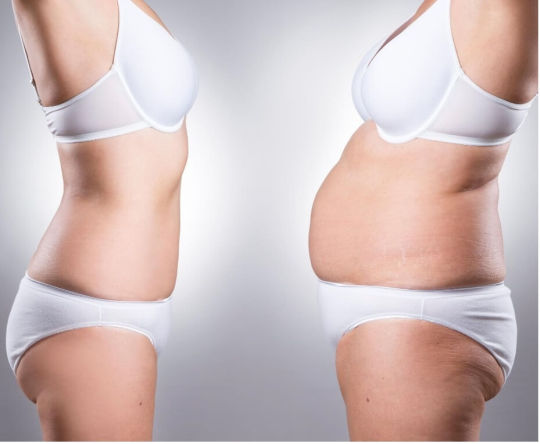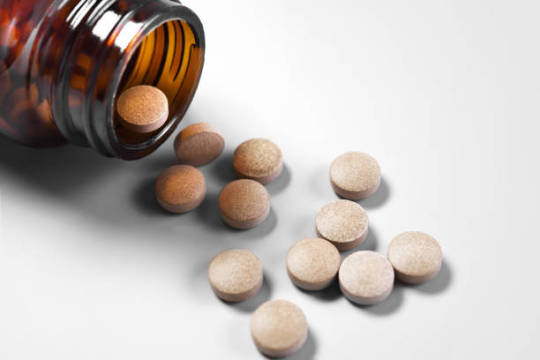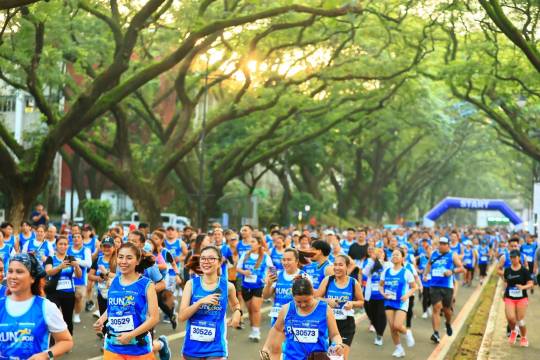#best diabetes workout
Explore tagged Tumblr posts
Text

Get access
#blood sugar#diabetes#high blood sugar#type 2 diabetes#diabetes workout#diabetes exercise#diabetes exercises at home#type 1 diabetes#low blood sugar#diabetic muscle and fitness#how to reduce blood sugar level immediately#health#exercise for diabetes#best diabetes workout#diabetes and fitness#normal blood sugar level diabetes#exercise and diabetes#blood sugar watch for diabetes#fitness#best exercise to reduce diabetes#fitness and type 1 diabetes
0 notes
Text
When Should We Eat Fruits?
Fruits can be eaten anytime, promoting health and energy.
Eating fruits is essential for a healthy diet, but there are many questions about the best times and ways to consume them. Let’s explore these questions and find the answers. Can We Eat Fruits in the Morning? Yes, eating fruits in the morning is beneficial. If you exercise or go to the gym, having a fruit as a pre-workout snack can provide you with the necessary energy due to the natural sugars…
#Antioxidants in Fruits#Avoiding Added Sugars in Fruits#Benefits of Eating Whole Fruits#Best Time to Eat Fruits#Eating Fruits at Night#Eating Fruits in the Morning#Fiber in Fruits#Fruit Consumption Tips#Fruits and Blood Sugar Levels.#Fruits for Better Health#Fruits for Diabetics#Healthy Diet with Fruits#Healthy Eating Habits#Natural Sugars in Fruits#Nutritional Benefits of Fruits#Pairing Fruits with Other Foods#panvel#Pre-Workout Snack#thepanvelite#Vitamins and Minerals in Fruits#When Should We Eat Fruits#Whole Fruits vs Fruit Juice
0 notes
Text
Banana Nutrition Facts: Why should you have a banana every day?
Please, visit for more info:

#banana vitamins and minerals#banana calories per banana#are bananas good for you#banana potassium content#banana fiber content#banana sugar content#is banana good for weight loss#banana carbs per banana#banana health benefits#best banana nutrition facts#daily value of potassium in a banana#what vitamins are in bananas#banana nutrition for diabetics#healthiest way to eat a banana#green banana nutrition facts#ripe banana nutrition facts#how much protein is in a banana#is banana a good source of iron#does banana have vitamin d#banana nutrition compared to apple#banana nutrition for before workout#banana nutrition for after workout#can diabetics eat bananas#best time to eat banana for weight loss#are bananas good for digestion#banana nutrition for babies#banana nutrition for kids#organic banana nutrition vs regular banana#dried banana nutrition facts
0 notes
Note
Hihi, here is some food for thought, albeit rather niche!
Ex-Professional Footballer Young Manager who agrees to play as a substitute player in a match in exchange for a major business sponsor for Blue Lock, and suddenly was absent from the Blue Lock Facility for a week because of it. The Blue lock boys (who didn't know about her football background bc she didn't think it was anything impressive compared to their achievements in Blue lock) panicking thinking Ego locked her off, only to end up learning the truth and watching (fanboying over) her match.
STRIKER OF THE HEART AND GAME
Notes: Yall never fail to give me the most, diabetic and tooth-decaying ideas to write. Theyre all so sweet, and I love reading ALL your asks.

"Good luck, Y/n-chan! You can do it!" Anri cheered beside you, watching you put on your cleats and gloves inside the sports bag as you sat on the tiles ground of Ego's office.
Speaking of the man, he had his back on you, eyes focused on the CCTV cameras around the facility as he watched the players practice in their own respective stratums and places. He was the epitome of calm, cool, and collected, opposite of the pounding of your heart just thinking about playing the sport once again.
Well, its not like Ego is about to be subbed in a team as its center midfielder where he has no prior knowledge or experience playing with, and being expected to dominate nonetheless.
"Thank you, Anri-san! Um...I'll try my best."
"Why are you nervous, Y/n-chan?"
A squeak was heard from Ego's swivel chair, as the man turned around to face you, his eyes disapproving and empty as it always looked. He stood up before folding his upper half forward to meet your eyes.
"You are in Blue Lock. A team already passed the average-at-best standard and world of Japan. Even if you are a manager here, you know the key to awaken your true capability, you know your own ego and strengths. Use them, use them wisely. I chose you as the manager of this place for a reason."
You looked at the man, your main mentor ever since you have been in this place with a smile. One large enough to brighten up your whole face. You know that even if his words came out somewhat harsh, this is his way of caring. Having seen it time and time again with how he interacted with the Blue Lockers, it was his way of comforting and at the same time looking out for your pre-game morale.
"Of course, Ego-san! I'll win this game!"
And with that, you headed out of the facility, inside one of the buses provided by the higher-ups and started the journey to where the match will be held.

"Y/n-chan! Let's eat lunch togeth- Eh? Y/n-chan?"
Shidou burst through your office door, ready to jump and hug you, and hopefully, have you join him in the cafeteria to eat lunch. But to his surprise, you were not there.
You would always be there when it was lunchtime, writing down some things or eating away in the confines of the room. But today, you were nowhere to be seen.
Shrugging, the striker just hopped his way to the cafeteria, thinking that you may be there. But to his chagrin, you also were not there. Shidou started to get a bit upset and sad, after all, he has not seen you for hours! He needs his daily dose of Y/n.
"Hey, has any of you guys seen Y/n? I haven't seen her since breakfast. She told me she'd help me schedule my workouts." The blonde heard Karasu talking with the other PXG members in the cafeteria.
But much to their worries, everyone seemed to be experiencing the same thing. No one has seen you since you entered the cafeteria to eat breakfast, and that was very unlike you. You would usually be walking around the facility, helping with the players and staff or even accomplishing your never ending responsibilities and tasks.
"Hmm, maybe she is just busy in her office? Or with Ego-san? We know how her work piles up aomost every second. I feel bad for her." Nanase answered Karasu's inquiry. His theory was not that farfetched and could possibly be true if Shidou did not just went there a few minutes ago.
"She isn't in her office, headband. I tried to look for her everywhere, but she isnt here."
"Not even in a different stratum?" Karasu added.
"Dunno. Didn't check."
"Then don't assume, idiots. She's probably in the other stratums-" But Karasu was cut off when their door to the cafeteria opened to reveal Reo who looked a bit panicked.
"Has any of you guys seen Y/n-chan around in your stratum?"
"Er, no. Why?"
"Then she's really missing. I've been running around the other stratums to ask if they've seen her anywhere but she is nowhere! You guys are the last place I asked and...well you get the idea."
Now that made all of them panic, where were you?!
Looking around at each other, they nodded as if they thought the same thing at the same time. There was definitely only one person who knows where you are.
Welp, time to go to Ego's office.

"What?" The man said, annoyed and a bit angry at the accusatory questions. Well, it was not accusatory but the thought of doing what the players were saying made him feel like they think he was dumb.
"Was she kicked out and we'll get a new manager?!" Reo said, panicking.
"What?! No, Y/n-chan is the best. You can't do that!" Charles said, frowning heavily. His teeth bared as if he was ready to bite Ego if he did confirm he kicked you out.
"Oi, four eyes if you kicked her out, I will kick you literally." Shidou threatened.
"Did she leave us here?" Rin said. Even if his voice sounded neutral and cold, there was a slight crack that indicated he was absolutely heartbroken if that was the case.
"No, you idiots. She didn't leave, nor did I kick her out. I am not dumb and she pampers you all too much for her to just leave." Ego rolled his eyes at the overdramatic and outlandish thoughts they had. Instead, he turned his swivel chair to face the monitors that were mounted on the wall.
"She is out for the week. She has to play in some matches. Unfortunately, no is not an option since it was tue JFU's decision. Now leave and go back to training, or else someone will indeed be kicked out of this place, and it's not her. Now go."
This definitely made the PXG team's (and Reo's) ears perk up in interest. You? Playing in a match? In a football match?! Holy cow, why did they not know? Or better yet, why did you not tell them?
That afternoon, most of the PXG members huddled together as they searched your game in the tablet provided in Blue Lock. And to no one's surprise, it was currently live, and the game is just about to start.
Meanwhile, in the Manshine stratum, Reo dragged both Nagi and Chigiri in their rooms and prepared the tablet.
"What are we even watching, Reo? I wanna play." Nagi mumbled on the pillow, laying down on the purple-haired male's bed stomach down, Chigiri who sat down on his bed as well nodded.
"Yeah, I mean, I don't mind. But it's not that important, is it." Reo looked offended when Chigiri even tried to insinuate that the match was not important.
"What do you mean not important?! Y/n-chan is going to play as their midfielder! Its the most important thing ever! We're already lacking because we're not there at all to support her! So we have to support her from here."
Now that got Chigiri to straighten up, and Nagi awake, both their eyes wide. They thought it would just be a normal exhibition match. But Reo did not mention you would be playing! Then maybe they would have immediately paid attention.
"You mean Y/n-chan is playing?!" Chigiri said in shock.
"Y/n-chan...I want to watch...!" Nagi said, for the first time paying attention to something, his once half-lidded eyes wide awake and focused on the screen of the tablet.
"Yeah! I didn't tell you?" Reo asked to which he just got a pillow thrown on his face, courtesy of Chigiri.
"No, you dumbass! Just start playing the live, geez."
Needless to say, the two teams even forgot to eat their dinner just to see the end of your match was an understatement. The members were too focused on their screens.
Charles, Rin, Shidou, Chigiri, Reo, and even sometimes Nagi would be muttering curses and mean words towards your teammates who would fail to receive the ball that you so graciously give them from the midfield. There were even times when you would give it to them in a place optimal for a goal, with a pass that even an amateur can score a goal with but they would still miss.
"That number 9 is a fucking idiot." Rin rolled his eyes.
"Number 9? You mean number 21! She is the worst striker I have ever seen! Hmph! If I was (nickname) I would never pass to her!" Charles said throwing his fists up in the air.
"Why is she even the striker? Y/n-chan should have been the striker, and instead, she's stuck at the midfield." Karasu commented.
"Poor Y/n-chan. The enemy team is already ahead of 2 points, and they still have none." Tokimitsu said the moment he saw your face when the camera panned at you. You looked stressed and a bit annoyed at your incompetent teammates.
"If I was her, I would have probably punched that number 21 girl." Shidou said with the angriest face anyone has seen him. After all, they were strikers, and they know a good pass when they see one. Yours were absolutely perfect every time, and if they received a pass like that, they would never waste it away by being locked by the goalkeeper orget stolen by the other team.
The Manshine players were not fairing well either. Reo was clenching the poor blanket too harsh in anger at their strikers and even the defenders and midfielders for leaving you alone at times and not syncing with your smart plans.
"Absolutely horrendous!! Why didn't they go there?! Even an idiot would know that Y/n-chan lured the other team's players there for a reason!" Reo complained.
"They're absolutely brainless at the game." Chigiri rolled his eyes, although he did feel a little amused that someone like Reo, who is usually a gentleman to girls, throwing curse words at the players.
"Hmm...I would be so happy if Y/n-chan gave me a perfect pass like that. She would even clear up some of the defenders just so number 21 or nymber 10 can score a goal." Nagi commented, a frown on his face, not liking that your team was losing.
But of course, when you make a mistake, its forgivable. Like the one time you received the ball a bit sloppily, mainly because you were growing tired.
"Well duh, of course she would miss. She's tired of carrying the whole team on her shoulders." Reo said.
In the dying minutes of the game, with only less than 10 minutes left, with the score being 2-0 in favour of the opposing team, you seemed to have had enough. You became a ballhog, dribbling like a pro against the defenders and midfielders, using your teammates as shields just for you to score a goal.
And let's just say that if Ego was not watching the match as well, he would have scolded the two teams for screaming like wild animals when you scored.
"Now that's a goal you fucking idiots!" Shidou laughed and jumped like a monkey along with Charles.
"She's the only decent player, which sucks." Rin rolled his eyes.
Some of the members of your team ran to congratulate with you, but instead of celebrating, you turned to the striker who looked a bit annoyed that you did not pass to her and scored yourself.
"If you can't do your work as a striker. Then I will do it and score. Do me a favour and get out of my way, that's the least you can do to help this team win."
Everyone was silent after you said it with a straight and emotionless face, just watching you walk away to your place in the court. To say that the striker was pissed was an understatement. She was the striker of this team for more than three years now! She was also older than you, meaning she deserved respect, and you had the audacity? You were just an intern, a replacement of their midfielder.
The other team members were split into two. Some who are close to the striker immediately sided with her and started to glare at you, while some who really wanted to win were more on your side, but they decided to just stay neutral and continue playing.
Until the end of the game, you were a ballhog, passing scarcely to avoid it being stolen by the enemies.
'Tsk, at least some of the defenders in this team are decent.'
Doing a quick roulette on the defender in front of you and immediately holding the shoulder of the one to your left. You squinted your eyes and shot another goal, this time it had a bit of curve to it that the goalkeeper did not read so it resulted into another miracle goal, or atleast thats what they called it because there was only 2 minutes left in the game.
Everyone in the stadium were on their feet, even the commentators stood up shouting in their mic in amazement.
"What...WHAT A GOAL!! THE INFAMOUS MANAGER OF BLUE LOCK HERSELF, Y/N L/N, SCORED A MIRACLE GOAL! A GOAL THAT EQUALIZES HER TEAM!"
In the end, there came an additional time but unfortunately, no goal came. After all, you were tired beyond belief as stamina had always been your problem and hence why you do not play much anymore.
So, it came to penalties. You managed to score your own penalty, but to say that your other teammates flopped was an understatement. The other team, however, managed to score 2 penalty goals, hailing them the winner of the match.
The boys, who watched in the Blue Lock facility, were more than pissed of course. You lost because of those stupid teammates of yours that dragged you down. The worst part is that they know you can produce better plays if only your teammates can catch up to it.
Ego, who waa watching remained neutral as ever, while Anri was gripping her hair in annoyance.
"It can't be helped. This is why we are striving to change Japanese football, Anri-chan." Ego said.
In the locker room, you remained quiet and neutral as always as you took a shower and changed into your normal clothes. But as you did, the striker of the team came out, her face contorted in annoyance.
"We lost because you were a fucking ballhog. Why couldn't you just pass the ball to me or Hana over here? Heck even to Aiyo-"
"Not really. We lost because none of you scored your penalties. Even if not all of you did, if only some of you did, we could have won. My ballhog move was for the best, after all, it was the one that scored us two points and equalized us. It was even the reason we got to play longer." You said with a straight face, just saying facts. But to the others, especially to the striker, you were bragging about being the best in the team and dissing their skills which pissed her off more.
If it was not for the manager walking in, the situation would have gotten worse. Thankfully, the manager was not any of the players as he congratulated and thanked you for your hat trick. And said, it was very much impressive seeing as the opposing team was one of the strongest in Japan.
"It's nothing, sir. I still had fun playing. Thank you."
With one last bow you left them to themselves.

"Why did you not tell us about this?!" Isagi said, mad and horrified. The other two teams did not tell them that you were playing matches and that you did one yesterday and he did not get to watch it?!
"Yeah! Chigiri, you're so mean!" Bachira said with a pout, while Niko just agreed.
"I'll tell Ubers about this. They have another one tomorrow right?"
"Yeah. At 7:30 pm. We wanted to support Y/n-chan even if we're stuck here. But be aware, her team is so shit it gets annoying and that Y/n is the only carrying that team. So yeah..." Chigiri said to which Isagi just shrugged.
"Oh, it can't be that bad, right?"
Oh, how wrong he was. Wednesday came, and all the teams all camped in a meeting room (inside the Bastard Munchen stratum) and set up the live (they managed to convince Ego, which was surprising but knowing his favouritism towards you, it was not that surprising).
At first, it was just the Blue Lockers, but when Kaiser, along with Ness, entered the meeting room, they were a little curious.
"Leave, Kaiser." Isagi rolled his eyes, to which the German just smirked.
"Oh, but I heared little Y/n will be playing a game. I want to watch how she does, of course."
Now, the meeting room was crowded as hell. Even some of the masters went to watch, for God's sake. The moment the match started, the whole pace was quiet down, and everyone's attention was on the screen of the large tv.
You got the ball early in the game as you dribbled past the midfielders and decided to give the strikers one chance to prove if they'll be worth passing to in this match.
You decided to give a curved pass accurate to where number 21 was, till now you did not really have any care to know what her name was. It was a pass that was easy to score a goal with. You put a good spin to it, and it was optimal for any type of straight shot.
Even the Blue Lockers rolled their eyes at this, not liking that you're going easy on your team, especially after what happened last game.
"If she doesn't score that, I don't have any hope for any of them at all, except Y/n-chan." Chigiri commented, remembering how pissed he was when he watched the previous game.
They all watched the striker, receiving the ball with the side of her right foot and kicked to the net only for it to hit the goalpost, bouncing on it to end outside.
"Are you fucking kidding me?" Isagi let out, everyone started to curse as well as the others.
"I mean, I would make a comment about how they're a Division 3 team. But anyone could have scored that goal..." Yukimiya said, shaking his head. This was a professional team? He thinks not.
"I think I know that striker girl. I have heard of her before... yeah. She was supposedly good, guess fame got to her head and she didn't improve anymore." Niko said, thinking back to some articles he has read about her. If that was the case, it would be rather sad that she wasted her talents and skills to remain in that same level forever instead of bettering herself.
After that fluke of a goal, you ended up just passing the ball to some of the defenders and midfielders who are much more efficient in protecting the ball or even scoring. After all, you were not used to being a ballhog, and the last game was just a desperate measure. But now, you had time to flesh out the game and your strategies instead of going all instinct.
Passing to one of the midfielders whom you knew named Yuko, you let her weave her way through the enemies before using her being stuck in the middle of two of them as a way for her to have no choice but pass it to you, which she did. You received it through the small opening before running through the field, dribbling the ball as fast as you can (you weren't a natural like Bachira or even Lavinho, but you weren't bad at it) before you were stopped by the opponent's defenders, who were lured by the aspect that you were not the best dribbler they have seen and to hopefully steal the ball.
Instead of fighting or dribbling past them, you kicked the ball high. It was high enough to seem like it was a pass, only it was to get past the defenders. It curved downwards as the goalkeeper tried to catch it, to no avail.
You scored your first goal of the night. And by God, was it magical to see. You were like a magical siren, elegantly swimming past the defenders, luring them using your elegant plays and seemingly understandable and naive plays so they can try and intercept you, only for you to turn around and be the one to make use of their belief that you were an easy. Just like the old sailors who thought that the beautiful girl in the middle of the ocean was an innocent woman, lured in by her beauty and hypnotizing voice, only to be dragged down the sea in despair.
You were that. Beautiful yet deadly. This was something none of the players or even masters have seen.
You looked ahead at the goal, not even celebrating as you just wiped the sweat on your forehead. As if you did not just plunge the opposing defenders into your sea, drowning them in despair.
"Damn...I've never seen her play...I kinda wish I did before..." Oliver said, breathless. The rest seemed like it as well, as if they were the players on the field, affected by your siren song.
"Now I get why Ego called her play...hypnotizing once...this is what he meant..." Kunigami added.
"Heh, a play that is so beautiful yet naive looking to lure in those around her, only to turn around and show her hidden monstrous side the moment she's in her golden zone for a goal. A killer playstyle that kid got." Lavinho said as he rested his back on the walls. You looked like you were dancing on the field so beautifully and elegantly. He would know since he was a dancer. And now he wonders if you had any backgrounds in dancing. The way you position your foot, your posture, the way you moved, and your isolation, it all reminded him of a dancer. He'll have to ask you.
"See! I told you guys. Y/n-chan is absolutely breathtaking when she plays." Bachira said excitedly. He had you play with him before, and he had a taste of your true ego before. Needless to say, it was one of the reasons why he had a crush on you somewhat. Your posture and the way you moved with a ball at the time to him was the perfect form for dribbling. And so, he would ask you for help in training and well, it was brutal but fun.
"Hmm, now I know your hidden side, Y/n. That crazy four-eyes definitely picked the right person to be the manager of these losers." Kaiser whispered under his breath.
ADDITIONAL TIME:
After the game:



Blue Lock is WRITTEN by Kaneshiro Muneyuki and ILLUSTRATED by Nomura Yusuke. All credits to the both of them.
#aninipanin1#blue lock#blue lock x manager!reader#bllk#bllk x reader#blue lock x reader#bluelockxreader#anon ask#bachira x reader#isagi x reader#itoshi sae x reader#itoshi rin x reader#shidou x reader#charles chevalier x reader#karasu x reader#reo x reader#nagi x reader#chigiri x reader#kunigami x reader#oliver aiku x reader
383 notes
·
View notes
Text
reason why i havent been posting alot recently!
hey there! some of u may be noticing i have been inconsistent abt posting and the reason is because my physical health is rlly wacky dacky rn since im close to getting diabetes at the age of 12 (and i would have to lose 40kg etc) . And its been terrifying me although ik how to workout it still scares me becuase i have like a huge ass fear of needles and im just scared of diabetes dawg i also heard from my peers that had diabetes realtives that its acc serious and can affect ppl mentally and physically so im js catching myself up w strict diets (NOT STARVING MYSELF THOUGGH), Got more motivation to get myself back to working out. But i have my amazing mother whos encourging me, i also have one of the best homies i can ask for (such as: @telemmy and @luvgutzzy ) making my fears lessen and yeah! i will try to post more on tumblr (i also met cool ppl on tumblr to such as: @kindred-spirit-93, @nymphachilles) :D!
10 notes
·
View notes
Text









During a pretty difficult time right now, I'm pushing on as well as I can.
My diabetes is ridiculous, as is my mucus problem.
I tell all of my online training clients how important it is to "go at your own pace". And that pace for each individual is never linear. Some days are a walk, some days are a run, some days are nothing more substantial than a slow shuffle. But that's STILL your best pace at that moment.
For me right now, that means no home workouts, apart from those online client sessions.
Out in the morning for my walk, and a pretty long bike ride to go see the homeopath. To tell her that I'm seeing literally no improvement yet.
She has given me something different. She now thinks my issue might be in the category of "long covid", as the timeline seems to suggest that.
Anyway, fingers crossed once again.
On the way back, we stopped for a big "full english breakfast" for lunch.
My real breakfast was peanuts, mixed nuts and apple with my collagen coffee.
Chill time was very much needed after getting home again early afternoon.
I'm exhausted. In different ways, to be honest.
But I'm not letting that stop me from living!
#fitspo#fitspiration#fitblr#healthy living#fitness#health and fitness#fit#suzieb-fit#health and nutrition
11 notes
·
View notes
Text
Best Exercises to Lower High Blood Sugar Levels Naturally
High blood sugar, or hyperglycemia, is a growing concern for millions of people worldwide. In the U.S. alone, around 34 million adults have diabetes, with many more living with prediabetes. The connection between exercise and blood sugar regulation is well-documented. Regular physical activity can boost insulin sensitivity and help manage glucose levels. Integrating exercise into a blood sugar management plan offers numerous health benefits, including improved mood, weight control, and enhanced energy levels.
Cardio for Blood Sugar Control
Aerobic Exercise Recommendations
Aerobic exercise is crucial for lowering blood sugar levels. The CDC and AHA recommend at least 150 minutes of moderate-intensity aerobic activity each week. This can include activities like brisk walking or moderate cycling. Aim for sessions that last at least 30 minutes most days.
Examples of Effective Cardio Workouts
Several cardio workouts can effectively manage blood sugar:
Swimming: A low-impact exercise that improves cardiovascular health.
Jogging: Ideal for burning calories and enhancing endurance.
Dancing: A fun way to engage muscles and elevate heart rate.
Real-life stories demonstrate success. For example, Sarah, a 45-year-old diagnosed with prediabetes, reported that regular swimming sessions helped normalize her blood sugar levels within months.
Monitoring Blood Sugar Before and After Cardio
Monitoring your blood sugar before and after workouts is essential. This helps you understand how your body responds to different exercises. If you notice a drop in your levels after exercise, consider having a snack rich in carbohydrates before your workout to prevent hypoglycemia.
Strength Training's Role in Blood Sugar Management
Building Muscle Mass and Insulin Sensitivity
Strength training boosts muscle mass, which improves insulin sensitivity. Research shows that increased muscle can enhance glucose uptake, making it easier for the body to manage blood sugar levels.
Recommended Strength Training Routine
A sample routine for beginners could include:
Bodyweight squats – 2 sets of 10-15 reps
Push-ups – 2 sets of 8-12 reps
Dumbbell rows – 2 sets of 8-10 reps
For advanced individuals, consider increasing weights and sets. Allow for 48 hours of rest between sessions for recovery.
Incorporating Strength Training into Your Week
Struggling to find time? Try scheduling 20 to 30 minutes, three times a week. Utilize shorter workouts and combine them with activities you already do. For instance, do a quick session during lunch breaks.
Yoga and Flexibility Exercises for Blood Sugar Balance
Yoga Poses for Improved Blood Flow and Circulation
Certain yoga poses can increase circulation and help regulate blood sugar:
Downward-Facing Dog: Strengthens and stretches your entire body.
Warrior Poses: Builds strength in the legs while enhancing focus.
Benefits of Mindfulness and Stress Reduction on Blood Sugar
Stress can lead to elevated cortisol levels, which can raise blood sugar. Research indicates that mindfulness practices, including yoga, may reduce stress and improve overall well-being.
Finding a Yoga Style That Suits You
Choose a yoga style that matches your fitness level. Gentle yoga is great for beginners, while Vinyasa offers more flow and movement. Joining a local class can provide motivation and guidance.
Walking: A Simple Yet Powerful Exercise
The Accessibility and Convenience of Walking
Walking is one of the easiest exercises to incorporate into daily life. It requires no special equipment, making it a fantastic choice for almost everyone.
Walking Strategies for Blood Sugar Control
Consider these walking strategies:
Take the stairs instead of the elevator.
Aim for a brisk pace, which enhances the benefits.
Explore walking routes that incorporate inclines to challenge yourself.
Combining Walking with Other Activities
You can easily combine walking with your regular tasks. Consider scheduling walking meetings or walking your dog when running errands.
Crucial Considerations for Exercise and Blood Sugar
Consulting Your Doctor Before Starting Any Exercise Program
Before beginning any exercise routine, consult your healthcare provider, especially if you have existing health concerns. They can help tailor a plan to your needs.
Adjusting Exercise Based on Blood Sugar Levels
Learn to gauge your pre-workout blood sugar levels. If levels are too low, consider a light snack prior to engaging in exercise. Adjust intensity based on how you feel.
Importance of Consistency and a Holistic Approach
Consistency is key in managing blood sugar. Coupling exercise with a balanced diet and medication (if necessary) is critical. Experts agree that lifestyle changes take time but have profound effects on health.
Conclusion
In summary, exercises like cardio, strength training, yoga, and walking can all play significant roles in managing high blood sugar. Always consult with a doctor before starting a new program and aim for consistency in your routine. Regular exercise not only aids in controlling blood sugar but also enhances overall health and well-being. Prioritize your physical activity; it’s crucial for a healthier future.
#diabetes#diabetescommunity#gestational diabetes#health and wellness#healthcare#type 1 diabetes#type 2 diabetes#wellnessjourney#north carolina#usa#health and fitness tips#health & fitness#health fitness#mens health and fitness#mental health#healthylifestyle#treatment#high blood sugar#diabetescare#insulin#diabetic#health#low blood sugar
2 notes
·
View notes
Text
What are the Causes of Late Periods? A period is a natural part of a woman's life, and its arrival, or lack thereof, can be a source of curiosity or concern. While a late period might send your mind racing to pregnancy tests, there are numerous reasons why your period might be behind schedule. Let's discuss the world of menstrual cycles and explore the top causes of late periods.
Pregnancy: The Obvious One
We can't ignore the most common reason for a missed period – pregnancy. If you're sexually active and haven't used contraception, a late period could be the first sign of a bun in the oven. However, it's important to note that pregnancy tests might not be conclusive in the very early stages. For accurate results, wait at least a week after a missed period before taking a test. You can also visit or take an online consultation with our specialist doctor Geetanjali Thakur , the best Gynecologist in Karnal.

Hormonal Harmony: When Things Get Out of Sync
Our bodies are like intricate orchestras, and hormones play the lead role in regulating our menstrual cycles. When these hormones get out of sync, it can lead to a late period or even missed periods altogether. Here are some common hormonal culprits:
● Polycystic Ovary Syndrome (PCOS): PCOS is a hormonal imbalance that affects ovulation, leading to irregular periods or their absence.
● Thyroid Issues: An overactive or underactive thyroid can disrupt hormone production, impacting your cycle.
● Birth Control: Starting, stopping, or switching birth control methods can disrupt your cycle for a few months as your body adjusts to the hormonal changes.
● Perimenopause: As you approach menopause, your estrogen levels naturally decline, leading to irregular periods or their absence.
Lifestyle Choices: Big Impact on Small Cycles
Our daily habits can significantly impact our menstrual health. Here's how some lifestyle choices can cause a late period:
● Stress: Chronic stress wreaks havoc on our hormones, including those regulating periods.
● Weight Fluctuations: Dramatic weight loss or gain can disrupt ovulation and lead to irregular periods.
● Excessive Exercise: While exercise is great for overall health, excessive workouts can put stress on your body and cause missed periods.
● Diet: Crash diets or restrictive eating habits can deprive your body of essential nutrients needed for a regular cycle.
Medical Conditions: When Other Factors Come into Play
Certain medical conditions can also affect your menstrual cycle and you should search Gynecologist dr near me and get the best solution, here are a few examples:
● Chronic illnesses: Conditions like diabetes, celiac disease, and autoimmune diseases can disrupt hormone regulation and lead to irregular periods.
● Pelvic inflammatory disease (PID): This infection of the reproductive organs can cause irregular periods.
● Uterine fibroids: These benign tumors in the uterus can sometimes cause heavy or irregular periods.
When to See a Doctor
While a late period is sometimes nothing to worry about, there are situations where it's best to consult a Gynecologist near you. Here are some red flags:
● You miss multiple periods in a row (especially if you're not pregnant or breastfeeding).
● Your periods are unusually heavy or painful.
● You experience abnormal vaginal bleeding.
● You have sudden weight loss or gain.
● You suspect you might have an underlying medical condition.
Taking Charge of Your Cycle
Understanding your menstrual cycle and its potential disruptions empowers you to make informed choices about your health. Here are some tips for keeping your cycle on track:
● Maintain a healthy weight.
● Eat a balanced diet.
● Manage stress effectively.
● Exercise regularly, but don't overdo it.
● Track your periods using a calendar or app.
● Talk openly with your doctor about any concerns.
Remember, a late period doesn't necessarily mean something is wrong. However, if you're concerned, don't hesitate to consult a Gynecologist near me. They can help you determine the cause and recommend the best course of action.
Additional Considerations
This blog post provides a general overview of common causes for late periods. It is not a substitute for professional medical advice. If you have any specific concerns about your menstrual cycle, consult your doctor for personalized guidance.
Concerned about your late period? Don't wait!
Schedule an appointment with the expert gynecologists Karnal. Our team can provide personalized guidance and address any questions you might have. Visit our website to book an appointment today!
2 notes
·
View notes
Text

Fitness for seniors
As we age, our bodies start to experience more health problems and get weaker. But that doesn't mean that senior citizens need to sit still.
In fact, staying active and fit is one of the best things they can do for their physical, emotional, and mental health. Many senior citizens may think that they're too old or too frail to exercise, but that's not the case. There are many low-impact activities that are specifically designed for seniors, such as walking, water aerobics, chair yoga, and tai chi.
These exercises can help improve mobility, flexibility, and balance, reduce pain and stiffness, and prevent falls. One of the best benefits of fitness for seniors is that it can help prevent and manage chronic diseases such as arthritis, diabetes, and heart disease.
Exercise can also improve mental health by reducing stress, anxiety, and depression, and boosting mood and self-esteem. But where should seniors start? Before starting any fitness program, seniors should consult with their doctor to ensure that they are healthy enough for exercise. They should also start slowly and gradually build up their endurance and strength. It's also important to stay hydrated and stop any exercise that causes pain or discomfort.
Seniors can also benefit from working with a personal trainer or joining a senior fitness class. A personal trainer can create a customized workout plan that fits their specific needs and goals, while a fitness class can provide a supportive and social environment that encourages regular exercise.
In addition to exercise, seniors should also focus on a healthy diet and getting enough sleep. Eating a balanced diet that includes plenty of fruits, vegetables, lean protein, and whole grains can provide the nutrients needed to fuel the body and reduce the risk of chronic diseases. Getting enough sleep can help seniors feel rested, energized, and ready to tackle their daily workouts.
In conclusion, staying fit and active is essential for seniors to maintain their physical, emotional, and mental health. With the right exercise program, seniors can improve their mobility, flexibility, and balance, prevent and manage chronic diseases, and boost their mood and self-esteem. So if you're a senior or know someone who is, encourage them to start moving and enjoy all the benefits that fitness has to offer.
#seniors#health#healthy lifestyle#wellness#health and wellness#healthy living#health tips#health is wealth#fitness#healthcare#tumblr milestone#workout
8 notes
·
View notes
Text

How to manage diabetes without Pharmaceutical prescription
Click here to get free access to Smart Blood sugar
#blood sugar#diabetes#type 2 diabetes#high blood sugar#diabetes workout#lower blood sugar quickly#how to lower blood sugar fast#diabetes exercise#low blood sugar#how to lower blood sugar#diabetes exercises at home#lower blood sugar#exercise for diabetes#lower your blood sugar#lower blood sugar fast#health#lower blood sugar exercise#best diabetes workout#diabetes workout at home#how to lower blood sugar and reverse your diabetes
1 note
·
View note
Text
The Ultimate Guide to Losing Belly Fat: Strategies for a Trim and Toned Midsection

Dreaming of a flat and toned stomach? You're not alone. Belly fat is a common concern for many people, but with the right approach, you can achieve your goals and reveal those sculpted abs. In this comprehensive guide, we'll explore the best strategies for losing belly fat, including the use of belly fat burners, effective dietary and exercise practices, and lifestyle adjustments to support your journey to a slimmer midsection.
Understanding Belly Fat
Before diving into the strategies for losing belly fat, it's essential to understand the different types of fat and why belly fat can be particularly stubborn. There are two main types of belly fat:
Subcutaneous Fat: This type of fat lies just beneath the skin and is often referred to as "pinchable" fat. While subcutaneous fat can contribute to a protruding belly, it is less harmful to health compared to visceral fat.
Visceral Fat: Located deep within the abdominal cavity, visceral fat surrounds vital organs such as the liver, pancreas, and intestines. Excess visceral fat is associated with an increased risk of various health conditions, including heart disease, type 2 diabetes, and certain cancers.
Best Strategies for Losing Belly Fat

1. Incorporate Cardiovascular Exercise:
Cardiovascular exercise, such as running, cycling, swimming, or brisk walking, can help burn calories and reduce overall body fat, including belly fat. Aim for at least 150 minutes of moderate-intensity cardio or 75 minutes of vigorous-intensity cardio per week, supplemented with strength training exercises to build lean muscle mass.
2. Focus on High-Intensity Interval Training (HIIT):
HIIT workouts involve alternating between short bursts of high-intensity exercise and periods of rest or low-intensity activity. HIIT has been shown to be particularly effective for reducing abdominal fat and improving overall fitness levels in a shorter amount of time compared to traditional steady-state cardio.
3. Incorporate Strength Training:
Strength training exercises, such as squats, lunges, deadlifts, and planks, can help build lean muscle mass and boost metabolism, leading to increased calorie burning and fat loss. Aim to include strength training workouts targeting the major muscle groups at least two to three times per week.
4. Adopt a Balanced Diet:
Focus on consuming a balanced diet rich in whole, nutrient-dense foods such as fruits, vegetables, lean proteins, whole grains, and healthy fats. Minimize intake of processed foods, sugary snacks, and refined carbohydrates, which can contribute to belly fat accumulation and overall weight gain.
5. Monitor Portion Sizes:
Practice portion control to avoid overeating and excess calorie consumption, which can lead to weight gain and belly fat accumulation. Use smaller plates, measure serving sizes, and pay attention to hunger and fullness cues to help regulate food intake.
The Role of Belly Fat Burners
Belly fat burners are supplements or compounds designed to enhance fat burning, particularly in the abdominal region. These products often contain ingredients such as caffeine, green tea extract, and forskolin, which are believed to increase metabolism, promote fat oxidation, and support weight loss. While belly fat burners may offer some benefits, they are not a magic solution for losing belly fat and should be used in conjunction with a balanced diet and regular exercise for best results.
Lifestyle Adjustments for Belly Fat Loss
In addition to diet and exercise, making lifestyle adjustments can help support your efforts to lose belly fat:
Get Adequate Sleep: Aim for seven to nine hours of quality sleep per night to support hormone balance, metabolism, and overall health.
Manage Stress: Chronic stress can lead to increased cortisol levels, which may contribute to belly fat accumulation. Practice stress-reducing techniques such as meditation, deep breathing exercises, or spending time in nature.
Stay Hydrated: Drink plenty of water throughout the day to stay hydrated and support digestion, metabolism, and overall health.
Conclusion
Losing belly fat requires a multifaceted approach that includes regular exercise, a balanced diet, lifestyle adjustments, and potentially the use of belly fat burner supplements. By incorporating cardiovascular exercise, strength training, and HIIT workouts into your routine, adopting a balanced diet rich in whole foods, and making lifestyle adjustments to support overall health and well-being, you can achieve your goals and reveal a trim and toned midsection. Remember to be patient and consistent, as losing belly fat takes time and dedication. With the right approach and mindset, you can say goodbye to belly fat and hello to a healthier, happier you.
4 notes
·
View notes
Text
Incorporating Supplements Into Your Routine Will Maximize Your Health Benefits

In order to maximize your health and well-being an appropriate diet, and regular workouts are vital. Even the most nutritious food choices may not be sufficient to provide your body with the nutrients it needs. This is where supplements can be helpful. In this post we'll explore the benefits of incorporating supplements into your daily regimen and ways to aid in maximizing your health.
Food Gaps to Fill
With a nutritious diet, it's hard to absorb all the nutrients your body needs to perform optimally. There are ways to fill in nutrition gaps with supplements. These will make sure that you receive all the nutrients, vitamins and minerals. essential nutrients.
For example, many people struggle to get enough omega-3 fatty acids that are essential to the health of your brain and heart. Supplements with fish oil can be the best way to make sure that you're getting sufficient amounts of these essential nutrients. Vitamin D can also be useful for those who do not receive enough exposure to sunlight. It is crucial to improve bone health and immunity.
Improved Athletic Performance
Supplements can be useful to fitness lovers and athletes who want to improve their endurance and recover. Creatine, as an example, is a popular supplement to increase muscle strength and bulk. BCAAs (branched-chain amino acids) can also lessen muscle soreness and aid recovery.
The nitric oxide and caffeine boosters could also help to improve the endurance and performance of exercise. It's essential to note that supplements are not a replacement for a healthy lifestyle and routine of exercise. In order to maximize the benefit of supplements, they must be taken in combination with a healthy diet and regular physical activity.
Supporting Brain Health
The support of brain health and function can be accomplished with supplements. Examples include omega-3 fatty acids and specifically DHA which are vital for healthy brain function and have been found to boost cognition and memory.
In addition, supplements like ginkgo biloba and phosphatidylserine can aid in improving cognitive performance and reduce symptoms of age-related cognitive decline. The supplements boost blood flow to brain cells, and enhance their overall health.
Lowering Irritation
youtube
Inflammation is a normal response in the face of infection or injury however, chronic inflammation may contribute to a variety of diseases, such as heart disease, diabetes, and autoimmune conditions. Vitamins like turmeric, ginger, and omega-3 fatty acids may help lower inflammation as well as promote general health and well-being.
For example, curcumin, the active ingredient found in turmeric, is a potent anti-inflammatory properties. It has also been demonstrated to lower inflammation within the body. Similarly, ginger has been shown to reduce inflammation and improve immune function. Omega-3 fatty acids, specifically EPA and DHA are also able to decrease inflammation and improve the health of your brain and heart.
Improving Resistant Objective
Supplements can be very helpful in boosting immunity and decreasing the chance of sickness and infections. Vitamin C, zinc and probiotics are excellent supplements to support immune function.
Supplements such as elderberry extract Echinacea, garlic and elderberry extract may aid in reducing the intensity and duration of colds, respiratory infections and other colds. The supplements boost immune function and help fight off infections.
Incorporating supplements into your daily life can help you achieve the healthiest you can be. Supplements are a great way to fill in nutrition gaps, boost the performance of athletes, boost the health of your brain, decrease inflammation, and enhance the immune system. It's crucial to remember that supplements should not be viewed as substitutes for a nutritious eating plan and workout routine.
8 notes
·
View notes
Text
Press Release: Southstar Drug x Maxicare Fun Run in Naga City
Why Running is a Must-Add to Your Wellness Routine
Did you know that running has been proven to make your brain literally grow by aiding in the creation of new brain cells? This helps improve a person’s overall cognitive function and reduce cognitive decline when done regularly. Aside from this, there’s a plethora of other health benefits that you can enjoy when you start lacing your shoes and getting those steps in every day. Read along to know more!.
Strengthens bones and muscles
Because it’s a high impact exercise, running helps improve bone health and can increase bone density. The stress applied to your legs, pelvis, and spine whenever you run allows the bones to repair and strengthen themselves. Similarly, running also helps build muscles in the lower body, particularly the glutes, thighs, and calves.
With strong bones and muscles, you are more protected from injuries plus your balance, coordination, and flexibility are also improved.
Reduces risk of chronic diseases
Various studies have already proven that regular physical activity like running can prevent and/or better manage chronic health conditions such as high blood pressure and high cholesterol that lead to heart diseases as well as diabetes and many forms of cancer. Together with the right diet and healthy lifestyle choices, running can improve the quality of your life so you can be at your best every day, not just for yourself but for your family as well.
Enhances mental well-being
Do you ever notice how your mood always seems to be much better after a good workout? It’s the endorphins and serotonin working their magic! Aside from improved mood, running also works like meditation in the sense that it can give you peace of mind and allow you to stay in the present, helping you manage and relieve the stresses of daily life. So the next time you feel overwhelmed or anxious, consider going for a run for an instant pick-me-up.
Interestingly, adopting running in your day-to-day routine enables you to improve other aspects of your health and wellness, including what you eat, how many hours you sleep at night, setting goals, and taking control of your time. This holistic approach is what Southstar Drug and Maxicare aim to promote through Run for Wellness.


Last September 10, over 1,700 runners took the challenge of embracing the first step in their journey toward their best life by joining the annual leg of Run for Wellness held at the Naga City Hall Grounds, Naga City. The starting line of the run saw participants composed of experienced runners and beginners, families and barkadas, and people from all ages and walks of life.




In its 12th year, Run for Wellness was held jointly by Southstar Drug and Maxicare to kick off their pioneering wellness initiative. A Metro Manila leg was also launched, which took place on August 13 at UP Diliman, Quezon City.
Southstar Drug and Maxicare, as champions of health and wellness, have partnered to support consumers in their journey toward a healthier and happier life. By offering an extensive selection of health essentials and world-class health services, they aim to be reliable companions, "Kasama sa Best Life," for Filipinos.
Visit southstardrug.com.ph and maxicare.com.ph to know more.


#KasamaSaBestLife healthcare champions Southstar Drug x Maxicare continue to support consumers wellness journey through Run For Wellness event.
#SouthstarDrugxMaxicareRunForWellness2023#Naga City#Camarines Sur#CamSur#Bicol#Philippines#FunRun#RunForWellness#Health#Fitness#Marathon#SouthstarDrug#Maxicare
3 notes
·
View notes
Text
Why Running is a Must-Add to Your Wellness Routine

Did you know that running has been proven to make your brain literally grow by aiding in the creation of new brain cells? This helps improve a person’s overall cognitive function and reduce cognitive decline when done regularly. Aside from this, there’s a plethora of other health benefits that you can enjoy when you start lacing your shoes and getting those steps in every day. Read along to know more!.
Strengthens bones and muscles
Because it’s a high impact exercise, running helps improve bone health and can increase bone density. The stress applied to your legs, pelvis, and spine whenever you run allows the bones to repair and strengthen themselves. Similarly, running also helps build muscles in the lower body, particularly the glutes, thighs, and calves.
With strong bones and muscles, you are more protected from injuries plus your balance, coordination, and flexibility are also improved.

Reduces risk of chronic diseases
Various studies have already proven that regular physical activity like running can prevent and/or better manage chronic health conditions such as high blood pressure and high cholesterol that lead to heart diseases as well as diabetes and many forms of cancer. Together with the right diet and healthy lifestyle choices, running can improve the quality of your life so you can be at your best every day, not just for yourself but for your family as well.
Enhances mental well-being
Do you ever notice how your mood always seems to be much better after a good workout? It’s the endorphins and serotonin working their magic! Aside from improved mood, running also works like meditation in the sense that it can give you peace of mind and allow you to stay in the present, helping you manage and relieve the stresses of daily life. So the next time you feel overwhelmed or anxious, consider going for a run for an instant pick-me-up.

Interestingly, adopting running in your day-to-day routine enables you to improve other aspects of your health and wellness, including what you eat, how many hours you sleep at night, setting goals, and taking control of your time. This holistic approach is what Southstar Drug and Maxicare aim to promote through Run for Wellness.
Last September 10, over 1,700 runners took the challenge of embracing the first step in their journey toward their best life by joining the annual leg of Run for Wellness held at the Naga City Hall Grounds, Naga City. The starting line of the run saw participants composed of experienced runners and beginners, families and barkadas, and people from all ages and walks of life.

In its 12th year, Run for Wellness was held jointly by Southstar Drug and Maxicare to kick off their pioneering wellness initiative. A Metro Manila leg was also launched, which took place on August 13 at UP Diliman, Quezon City.
Southstar Drug and Maxicare, as champions of health and wellness, have partnered to support consumers in their journey toward a healthier and happier life. By offering an extensive selection of health essentials and world-class health services, they aim to be reliable companions, "Kasama sa Best Life," for Filipinos.
Visit southstardrug.com.ph and maxicare.com.ph to know more.
#KasamaSaBestLife healthcare champions Southstar Drug x Maxicare continue to support consumers wellness journey through Run For Wellness event.
2 notes
·
View notes
Text
Know the Health and Wellness Benefits of Cardio
For maintaining a healthy lifestyle, regular physical activity is key. One of the most effective and accessible forms of exercise is cardiovascular exercise, often referred to as "cardio." In this blog, we will explore the numerous benefits of cardio and why you should consider incorporating it into your fitness routine.
1. Improved Heart Health
One of the basic benefits of cardio is its positive impact on heart health. Engaging in activities like running, swimming, or cycling helps strengthen the heart muscle, making it more efficient at pumping blood. This, in turn, lowers the risk of heart diseases, such as coronary artery disease and hypertension.
2. Weight Management
Is shedding a few extra pounds is on your agenda? Then cardio workouts can be your best friend. The benefits of cardio exercises include burning calories, helping you create a calorie deficit necessary for weight loss. Regular cardio workouts, combined with a balanced diet, can assist you in achieving and maintaining a healthy weight.
3. Improved Lung Capacity
One of the important benefits of cardio is, these workouts challenge your respiratory system, leading to increased lung capacity over time. This can result in improved endurance and overall stamina, making everyday activities feel less tiring.
4. Mood Boost
Exercise, including cardio, stimulates the release of endorphins, often referred to as "feel-good" hormones. These chemicals can help reduce stress, anxiety, and symptoms of depression, leaving you feeling happier and more relaxed.
5. Better Sleep
Are you someone who is struggling with insomnia? Cardiovascular exercise can help with that too. Regular physical activity can improve the quality of your sleep, helping you fall asleep faster and enjoy a deeper, more restorative rest. That’s a bonus benefit of cardio for those who have trouble sleeping.
6. Increased Metabolism
Benefits of cardio don't end there. Cardiovascular exercise can increase your metabolism, helping your body burn calories more efficiently even when you're at rest. This can help in weight management and overall energy levels.
7. Lowered Risk of Chronic Diseases
Regular cardio can reduce the risk of various chronic conditions, including type 2 diabetes, stroke, and certain types of cancer. It promotes health and longevity.
8. Increased Brain Health
Cardio has been shown to improve cognitive function and memory. It may even reduce the risk of cognitive decline as you age.
9. Social Engagement
Many cardio activities, such as group fitness classes or team sports, provide an excellent opportunity to socialize and build a support system, improving your overall well-being.
10. Stress Reduction
Are you feeling stressed out ? Cardiovascular exercise can serve as an excellent outlet for stress relief. It allows you to clear your mind and focus on the present moment, leaving you feeling new. In short, the benefits of cardio are numerous and yes! Cardio is the solution for all your problems.
In Conclusion
The benefits of cardio are numerous and results not only physical but also mental and emotional well-being. Incorporating regular cardio workouts into your routine can lead to a healthier and happier life. Whether you prefer jogging in the park, dancing in a studio, or hitting the gym, finding a cardio activity that you enjoy is the first step toward reaping these incredible benefits.
So, what's the wait for? Lace up those sneakers, grab your workout gear, and start experiencing the positive changes that cardio can bring to your life. Your heart, body, and mind will thank you for it.
Remember, consistency is key. Aim to engage in cardio activities regularly, listen to your body, and enjoy the journey to a healthier you. Your future self will appreciate the effort you put in today.
2 notes
·
View notes
Text
"5 Mind-Blowing Benefits of Sticking to Your Fitness Schedule

Are you worn out of starting a fitness regimen best to lose motivation and fall back into old habits? It's a not unusual battle that many people face in relation to keeping a regular fitness routine. In a world packed with busy schedules and endless distractions, staying devoted to your fitness dreams might appear to be an uphill struggle. However, the rewards of sticking to your fitness schedule are mind-blowing. In this newsletter, we're going to delve into the excellent advantages that anticipate folks that live committed to their health journey.
The Power of Consistency
Building Physical Endurance and Strength
Consistency is the important thing to unlock your frame's full potential. When you persist with your health agenda, you gradually increase your physical endurance and power. Whether you are hitting the gym, going for a run, or training yoga, regular workout challenges your muscle tissues, making them stronger over time. This now does not best complement your overall performance at some point of exercises but additionally improves your usual everyday sports.
Boosting Mental Clarity and Focus
Physical exercising does not just gain your body; it's an effective tool for your thoughts as nicely. Engaging in regular exercises will increase blood go with the flow to the brain, promoting the discharge of neurotransmitters that decorate cognitive characteristics. This results in stepped-forward mental readability, awareness, and a sharper capability to tackle demanding situations each in your non-public and expert existence.
The Transformative Impact
Achieving Weight Loss Goals
One of the maximum sought-after benefits of preserving a health schedule is accomplishing weight loss desires. By always conducting bodily activity and combining it with a balanced food plan, you create a calorie deficit that aids in dropping undesirable pounds. Over time, your body undergoes a transformative technique, not best helping you look higher but additionally boosting your confidence and self-esteem.
Elevating Mood and Reducing Stress
Life's demands can regularly lead to strain and anxiety. Regular exercise acts as a herbal stress reliever with the aid of triggering the release of endorphins, which can be called “sense-right” hormones. These endorphins assist elevate your mood, reduce stress, and combat feelings of depression. Committing to your fitness ordinary can lead to a more superb and emotionally balanced lifestyle.
The Long-Term Gains
Enhancing Longevity and Quality of Life
Imagine residing in an extended, healthier lifestyle with an excessive first-class lifestyle for the duration of. Sticking to your health timetable performs a big position in achieving this aspiration. Regular exercising reduces the chance of chronic illnesses, which include coronary heart sickness, diabetes, and high blood pressure. It also improves bone density and muscle mass, contributing to your normal proper-being and sturdiness.
Fostering Discipline and Determination
Consistently adhering to a fitness timetable calls for subject and resolution. These features go beyond your exercises and seep into everything in your lifestyle. The commitment you display to your health and health dreams spills over into your working ethic, relationships, and personal improvement. By nurturing discipline and resolution, you place yourself up for fulfillment in all areas of your life.
Conclusion: Embrace the Transformation
In conclusion, the blessings of sticking to your fitness schedule are sincerely thoughts-blowing. From improving your bodily energy and mental readability to reaching weight loss goals and fostering durability, the rewards are abundant. As you embark on this adventure of self-improvement, maintain in thoughts that consistency is your pleasant ally. Embrace the transformation, project yourself, and gain the countless blessings that a devoted healthy ordinary brings.
So, are you prepared to take the jump and decide on your fitness journey? The desire is yours, and the consequences are waiting so that it will be found out. As the pronunciation goes, "The handiest terrible exercise is the only one that didn't take place." Start these days, and let the mind-blowing blessings reshape your existence for the higher.
2 notes
·
View notes